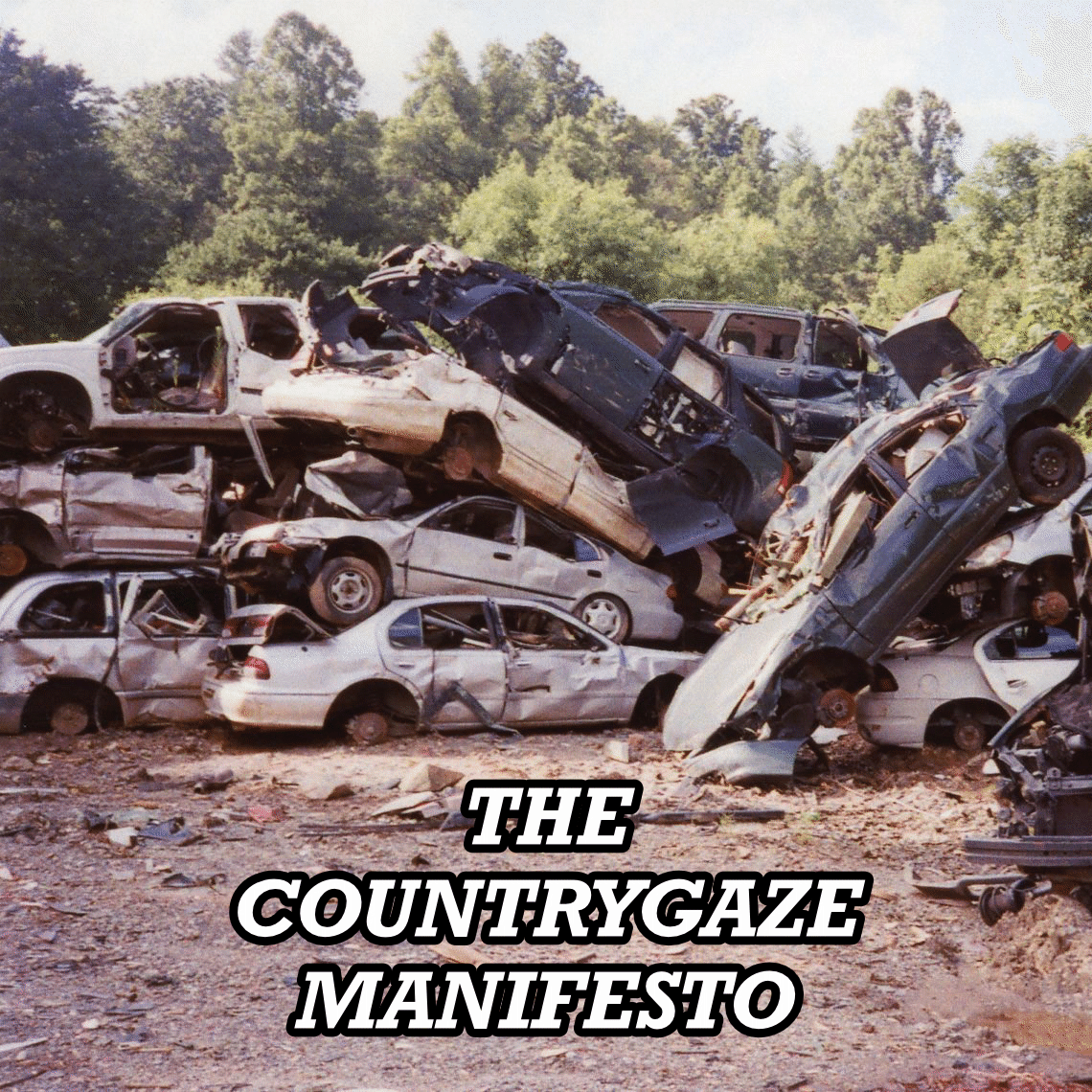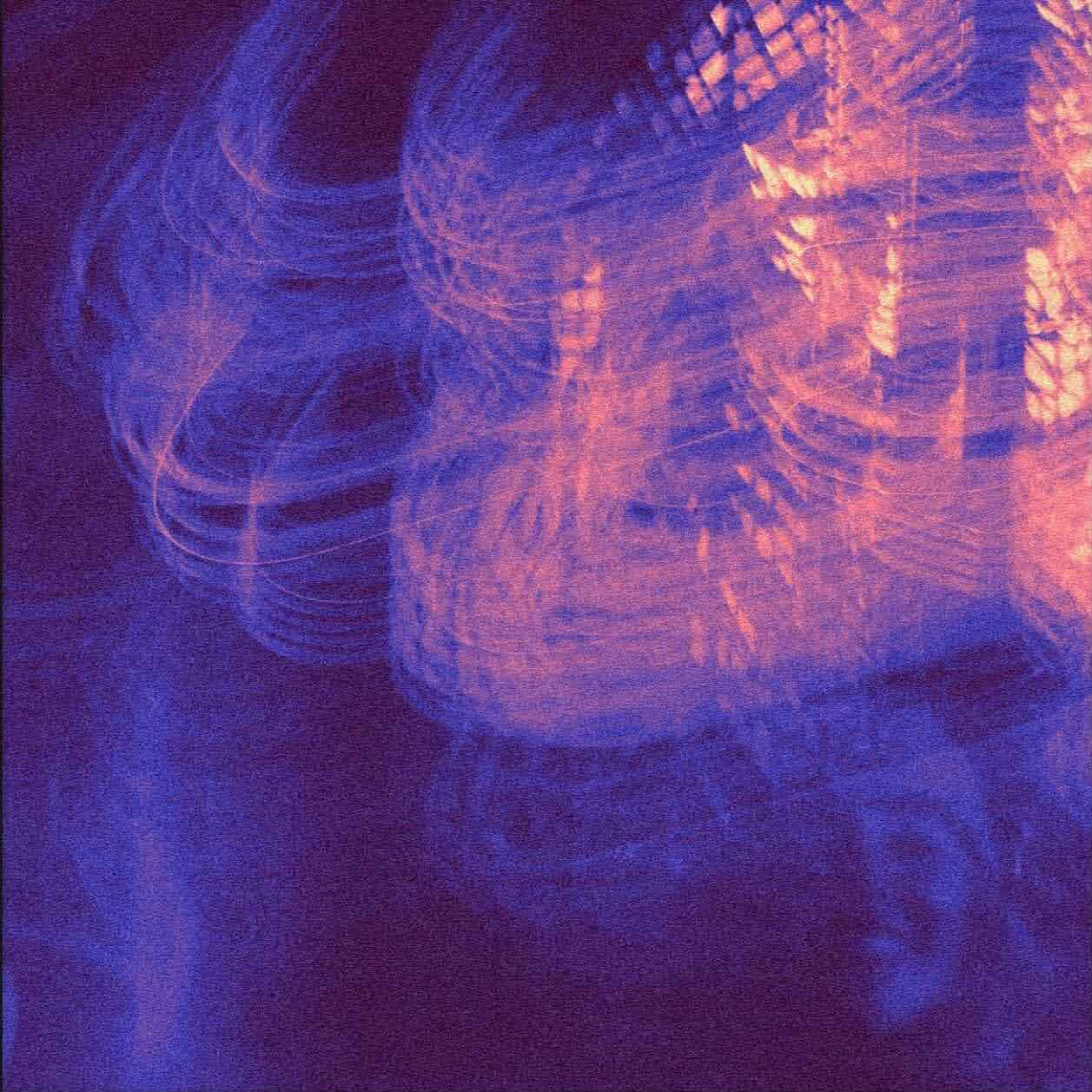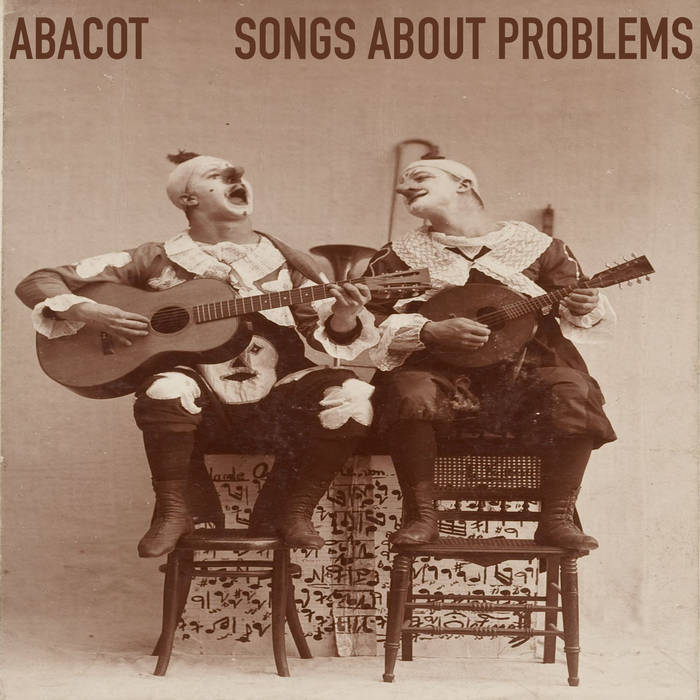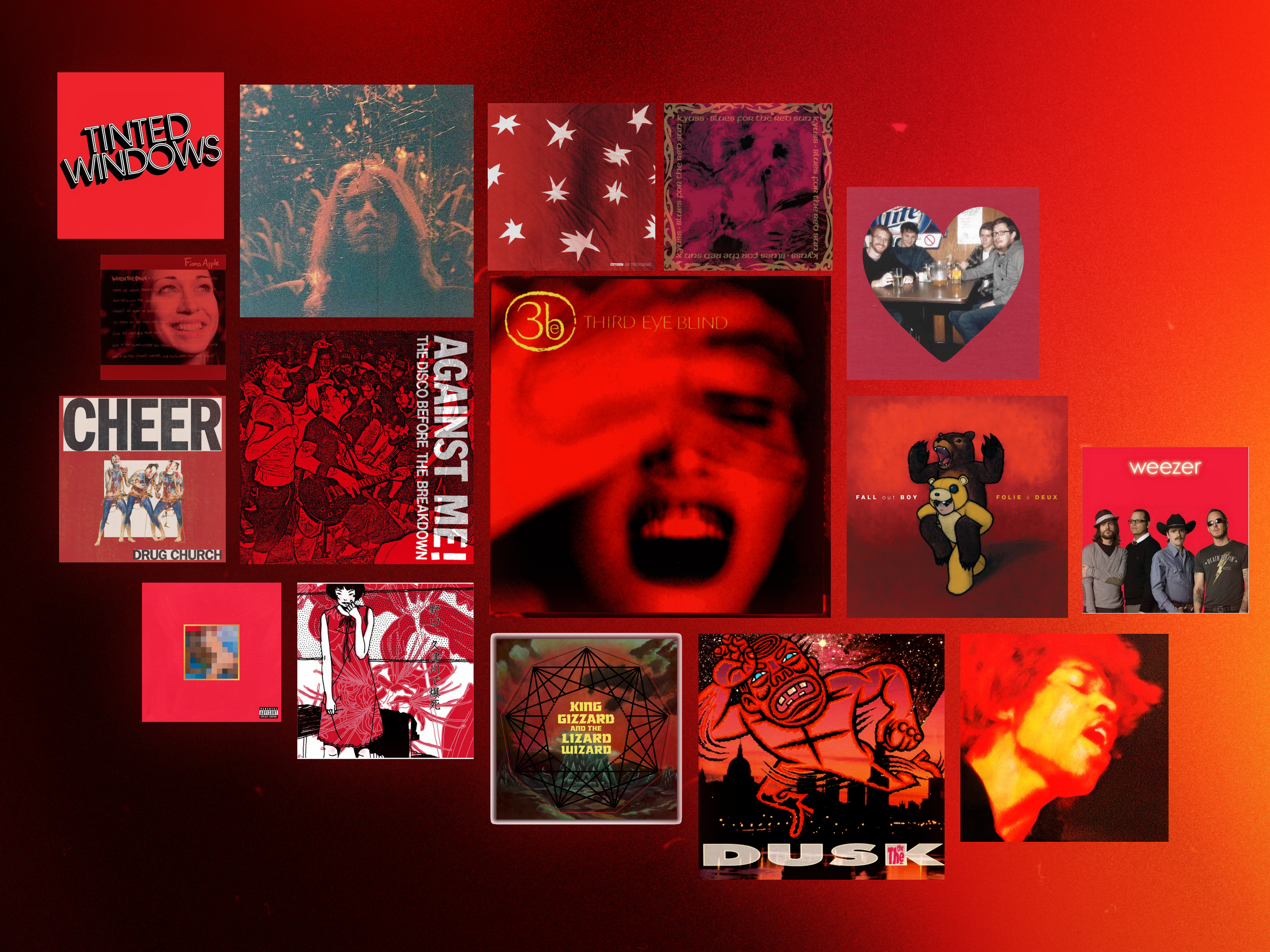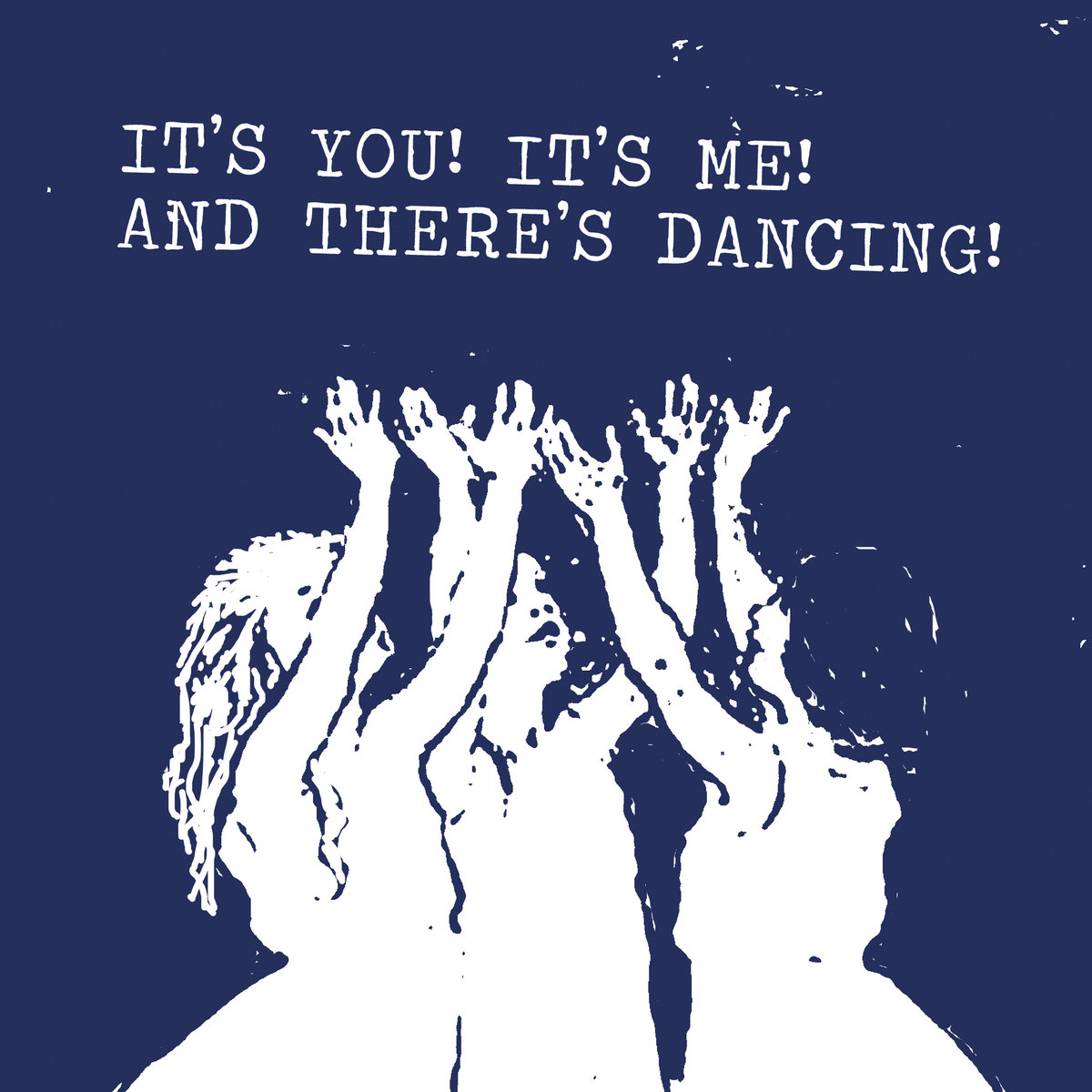The Countrygaze Manifesto
/One time in 2009, I was sick as a dog. I was a sophomore in high school, and this was still a period before widespread smartphones or apps. The only sources of entertainment I had were my trusty iPod and a tiny little netbook laptop. It was a sunny spring afternoon in Oregon, and I was experiencing that delirious kind of sickness where your brain can barely function. I was bored as hell, but even in my stupor knew I had seen all that MySpace had to offer. Eventually, I found myself surfing Wikipedia, aimlessly clicking around various band pages in no particular direction.
I wound up on the page for Saves The Day, a band I had recently become enamored with, thanks to a particularly impactful Vagrant Records sampler. Wow, browsing the Wikipedia page for a band at 1 pm on a weekday, say what you will about me, but I have always been the same type of music nerd. I’m also the type of music nerd who just enjoys reading about a band, taking in as much history as possible in order to better understand them. Out of all the information on Save The Day’s page, the one thing that stuck out to me most was a pair of words in the band’s “genres” section: pop-punk.
I was in an exploratory mood, so I clicked on the link and what I found blew my mind. It sounds silly to admit, but it wasn’t until I was face to face with that Wikipedia article at the big old age of 15 that I realized my favorite type of music had a name. Pop-punk.
At this point, I was truly beginning to expand my musical taste; post-hardcore, grunge, indie, and metal were all seeping in around my strong foundation of classic rock adoration and Guitar Hero soundtracks. Underneath all of this was pop-punk. Seriously. Some of my first CDs were Sum 41, Good Charlotte, Simple Plan, and Green Day. I had spent my entire life listening to this subgenre, and I didn’t even know it.
I was too young and musically dumb to see the bigger landscape of what music was. I grew up hearing “Who Let The Dogs Out” in every movie trailer and listening to “Drops of Jupiter” on the radio. To me, “In Too Deep” was the fastest and coolest thing I had ever heard. I didn’t know what genres were, much less something as specific as pop-punk. This was also before Twitter, Reddit, and message boards leveled the playing field on musical knowledge. Some of that stuff existed, but I didn’t know where to find it. I knew what I liked when I heard it, but I hadn’t realized that things like subgenres could lead me to other bands and scenes I would enjoy in the same way.
Editor’s Note: Both “Who Let The Dogs” Out and “Drops of Jupiter” are undeniable bangers. I’m only using them here as examples to provide context to my understanding of music at the time growing up and becoming musically conscious in the late 90s/early 2000s.
Fast forward another 13 or so years, and I am still the biggest music nerd you can imagine. I run multiple music blogs, have a Twitter feed clogged with hundreds of esoteric bands, and my iTunes library boasts an unwieldy 70k songs. This blog is a years-long testament to my musical obsessions, large and small. I’ve fallen in love with countless bands and embedded myself in more subgenres and scenes than I care to count. Over the past year, one of my most powerful obsessions has been with a semi-invented genre called Countrygaze.
Countrygaze is exactly what it sounds like; a little bit of country, a little bit of shoegaze. This is best exemplified by groups like Wednesday and MJ Lenderman, also known as indie music’s favorite power couple. In fact, I’d go as far as to say that Wednesday specifically are the countrygaze blueprint, and Twin Plagues is a textbook example of what the genre stands for. Sure, other bands have played at this intersection before, but nobody has owned it or honed it quite like Wednesday.
On the Bandcamp page for Twin Plagues, underneath the cute video for “Handsome Man” and the excellent essay by Hanif Abdurraqib you’ll find a basic but telling section; the tags. This is tucked all the way at the bottom, beneath the credits and the legal. In this section, Twin Plagues is self-labeled by the band as “rock, country-gaze, indie, lo-fi, shoegaze, and Asheville.” Spoiler alert, the full-circle moment in this article comes here because I felt the same way reading “country-gaze” as I did when I first read pop-punk. Are you kidding me, there’s a name for this specific thing I’ve been obsessed with for the past year? Thank fucking god.
If you’re unfamiliar with shoegaze, this might be a good spot for a brief crash course. The genre was first popularized in the 90s by artists like My Bloody Valentine and Slowdive. Depending on who you ask, the term shoegaze could apply to everything from the more biting grunge of artists like Hum to the dreamier soundscapes of artists like Cocteau Twins. The usual signifier of shoegaze is the heavy use of effects pedals to create distorted riffs cranked out at an all-consuming volume that often overshadows the band’s own vocals.
Over the past two decades, the shoegaze genre has maintained modest popularity, mostly in niche subcultures and heavy-adjacent music scenes. Bands have been making great records in this realm for as long as people have been making oversized pedalboard jokes.
Here’s where Countrygaze builds off of this foundation in a novel way. Wednesday’s lead singer Karly Hartzman never gets too dreamy on the vocals, but she also isn’t afraid to distort or modulate her voice. To me, that's an essential part of this fake subgenre. Many of the songs in Wednesday’s discography have shoegaze textures but keep the vocals a little more upfront. Lyrically, these songs could easily be mistaken for country on paper; they hinge on simple observations but ladder up to bigger topics like heartbreak, death, and other forms of loss. The band telegraphed this connection pretty heavily on their covers album from earlier this year which puts the likes of Gary Stewart and The Drive-By Truckers shoulder to shoulder with bands like Smashing Pumpkins and DIY shoegazers Hotline TNT. Take these influences, and you can see how a band would internalize them, then output an album like Twin Plagues or 2020’s I Was Trying to Describe You To Someone.
Look no further than any of Wednesday’s music videos to understand what countrygaze looks like. In these videos, Wednesday play their songs in fields of dead leaves or empty K-Mart parking lots. Home videos exist alongside footage of tour life and cozy North Carolina living rooms. Nature is present and abundant but is often dotted with litter and dirty patches of snow connected by colorless gray highways. These videos are all beautifully shot, using earnest POV footage, and edited in a way that matches the songs perfectly. Heavy as the music and some of the themes are, most of these videos are also humorous and endearing, whether it’s clown metal face paint, Ring Pop props, or simply the sight of the members rocking out to their own riffage in the back of the van, they show a band loving the art they’re creating. If you want to know what countrygaze is, simply throw on a playlist of Wednesday music videos, and let it roll for an hour.
As I sank deep into a Twin Plagues rabbit hole by the end of 2021, I started to put together a playlist of songs that fit this hyper-specific criteria. Fuzzy shoegaze riffs, a little bit of twang, and super simple lyrics. That’s the formula. Many songs out there have one or two of these things, but very few artists put all three together. Even Wednesday themselves sometimes drop the fuzz for classic country balladry like on “How Can You Live If You Don’t Love How Can You If You Do.” Other times, they drop the riffs for hypnotic lo-fi abstraction on tracks like the closing cover song “Ghost of a Dog.”
On the flip side, you have songs on Twin Plagues that read as complete and utter embodiments of Countrygaze. The shreddy, seesaw riff on “Handsome Man” paired with lyrics of overpasses, broken glass, and trashy family photos. One song later, the sight of a dilapidated fast-food restaurant forces Hartzman into an existential crisis. A woozy lap steel guitar soundtracks this internal struggle, eventually giving way to a torrential shoegaze riff that towers above everything that came before it. Choices like this give the songs a grungy loud/quiet/loud dynamic that encourages the listener to lean in only to be bowled over moments later by an overwhelming crush of noise. This shift also contextualizes the song’s lyrics, making them feel big or small depending on what Hartzman and company decide to prop them up against. Speaking of which, there’s a lyric on “Cliff” about putting a loved one’s ashes in a Dallas Cowboy urn, and honestly? If I were to distill this semi-fake subgenre down to a single line, it might be that one.
In almost every case, these songs are small in theory but big in practice. The worlds are lived-in, often populated by modest people who are trying their best despite circumstances that are not always in their control. There’s truthfulness and relatability in how the band depicts these southern mundanities, making it feel as if you’ve lived the memories yourself in a dream or a past life. There are specific details and nouns that stick out, but there’s also a hot and oppressive southern haze that ties the whole thing together. That’s why I think Twin Plagues is the foundational record for this genre, because it wrote the playbook. This record is the canvas, and other bands are now beginning to play within it.
By the beginning of the year, I had declared myself fully “Wednesday-Pilled.” I had purchased all the band’s albums off Bandcamp, was taking excited selfies holding their vinyl, and slowly stitching together the tapestry of this wider countrygaze sound. I realized some of the more mellow stuff from Greet Death fit this category. I was talking to friends on Twitter about the novelty of this sound and discovering new artists in the process. Then-just released songs like “Kerrytown” by Big Vic, “Doubts” by Cloakroom, and “Q Degraw” by Wild Pink proved that this was an ongoing phenomenon and affirmed that this genre was something worth chasing down.
I threw together a silly little Spotify playlist, and then the weather got warmer. By the time spring had rolled around, the term “Countrygaze” had largely slipped my mind. The weather was warming up, and I needed upbeat music to match the tempo. I was also at the beginning of an exciting new relationship, deeply in love, and happy with my life for the first time in a long time. I was ready to leave the all-consuming crush of countrygaze in a sadder section of my Spotify library. Then MJ Lenderman released Boat Songs.
I had heard Knockin’ and Ghost of Your Guitar Solo the year before, but nothing had really connected with me outside of the latter’s titular instrumental. But something clicked with Boat Songs, and the record ended up soundtracking my summer. Maybe it was just something about that dumb hat or the charming thrill of hearing a man sing “Harris Teeter,” but the record delighted me. It also blew the doors open on Countrygaze by providing a distinct counterpoint to Wednesday’s particular brand of art school shoegaze.
While Wednesday songs are often sweeping and poetic, MJ Lenderman's songs are folksy and goofy. They recount sports esoterica and romanticize wrestling. They hold sportstar Dan Marino and Disney's Toontown in equal regard. MJ Lenderman dares his audience to imagine a scenario in which they’ve bought a boat or tool around town in an SUV. He’s talking directly to the kind of audience who both relates with and wouldn’t mind belting along the lyrics, “I love drinkin’ too, yeah, I love drinkin’ too.” It’s basically the ultimate “Dudes Rock” music, but there’s also something deeper going on under the hood.
In contrast to the examples listed above, MJ also offers up a surprisingly deep philosophical probe on “Tastes Just Like It Costs” and stares down the loneliness of the universe on “Six Flags.” He also has a knack for writing lyrics that sound like they’re already colloquialisms. “Tastes Just Like It Costs” isn’t just a great chorus; it’s good advice and a cautionary tale. You get out what you put in; you pay for shit, ya get shit back; tastes just like it costs.
At one point, near the tail end of Boat Songs, MJ takes a stab at articulating the feeling of love on “You Are Every Girl To Me.” In this song, love can be found in the vibrant colors of a community swimming pool and the simplicity of a birdfeeder. Love can also be found in small, heartfelt gestures like homemade dinners or buying someone a silly shirt. Ultimately, no lyric could be MJ Gospel more than the one found at the end of the second chorus when Lenderman sings, “Jackass is funny / Like the Earth is round.” Yes. We need more love songs about Jackass.
Another exemplary MJ Lenderman cut is “Someone Get The Grill Out Of The Rain” off Guitar Solo. The track is only a minute and 13 seconds long and doesn’t venture much beyond the conflict stated in its title. Someone left the grill out in the rain. MJ is gonna write about it. Halfway through the song, Lenderman lifts the veil and reveals what the song is really about.
“It'd be such a bust
That grill should rust
Precious memories are the ones
That suck
Just can't get enough”
At one point, my girlfriend and I were talking about MJ Lenderman’s lyrics, and we arrived at the conclusion that he’s adept at writing “a song about nothing that’s actually kinda about something.” Just look at that quote above from “Grill.” Sure it’s a song about a BBQ being left out to the destructive whim of mother nature; it’s also about a whole lot more. Similarly, a track like “I Ate Too Much At The Fair” is exactly what it sounds like. Again, the lyrics barely venture beyond the ones that make up its title but are presented in such a way that gives them an inherent deeper meaning. You can project a lot onto a song like “Fair,” but you could also just take it at face value as a song about eating too many elephant ears and feeling a little sick. That’s the beauty.
Through a detailed patchwork of originals and covers, Wednesday and MJ tackle things as commonplace as billboards, TV dinners, and trash fires. They take these everyday occurances and shift the listener’s perspective until those same concepts become holy. Together, Wednesday and MJ Lenderman offer two sides of the same Countrygaze coin. One brings big, towering riffs, and the other provides shorter, smaller slices. Both circle around the complex realities of life; they’re just approaching it from different angles.
Most recently, bands of all shapes, sizes, and locations have been fleshing out their own corners of countrygaze. Wild Pink packed a wallop into their new album with the one-two punch of “See You Better Now” and “Sucking On The Birdshot.” Greet Death cooned “Your Love is Alcohol,” and no booze-based metaphor has ever hit the same quite since. Bands like Dialup Ghost have taken the lyrics in a radical political direction. In contrast, others like Spirit Was have leaned further into abstraction, melding equivalent but equally disparate genres like folk and blackgaze. Even albums from a couple of years ago, like Moveys and Empty Country, could now fall under this Countrygaze category retroactively.
Exciting new groups like Big Vic and A Country Western have been adding their own artistic flare to these sounds, pushing the genre in artsy new directions that retain the distortion and the occasional hint of twang. Even Wednesday themselves show no sign of stopping; back in September, the band dropped an eight-and-a-half-minute bruiser called “Bull Believer,” and it’s already one of my favorite tracks from the project. That single (along with a signing to Dead Oceans) signaled a fruitful new page for the fake little genre that could.
The cherry that came on top of this avalanche of highly-specific tunes came when I found myself bored clicking around the Wednesday Bandcamp page a few days ago. I was reminded of the term ‘countrygaze’ and decided to Google it just to see what would come up.
The top search result was the page for the Bandcamp tag, of which Wednesday’s discography sits prominently at the top. There are also a few artists underneath the core three Wednesday albums, including scoutmaster and Nash To Stoudemire (two Wednesday side projects) and one from an LA group called Grave Saddles. This group has released an EP, a single, and most recently, a 2022 Tour Tape proudly tagged with the “country-gaze” moniker.
I gave the three-track release a listen, and much to my surprise, I found myself really enjoying it. Most of all, I couldn’t shake how perfectly all three songs fit within the “countrygaze” label. I love this little tape, and it’s got me excited to follow this band to see what they do next. And this is how Countrygaze becomes a real thing.
Wednesday still feel completely out of reach for me (plus, nothing I write could ever stack up to this profile in Oxford American), but I recently became mutuals with Grave Saddles on Twitter and decided to take that connection as an opportunity to ask them about this genre. Based on the group’s releases, it seemed like they had been active since 2019, but it wasn’t until 2021 that they began using the “Countrygaze” tag on Bandcamp. I asked guitarist Chris Broyles what he thought of that descriptor, how the band arrived at it, and whether or not it was influenced by Wednesday.
Broyles explained that they threw the Countrygaze tag on that release because it seemed to be the most widely agreed-upon term for whatever this scene is. They had a band before this one that often got relegated to the umbrella “shoegaze” descriptor. The band admitted they “100% lifted the tag from Wednesday” but also view that subgenre as one part of a larger movement called post-country. In the band’s own words, post-country is “essentially country songs or the essence of country songs that forego established conventions or instrumentation.”
The band traces their interpretation of this term back to Arthur Miles’ “Lonely Cowboy” in 1929, a song they jokingly called “proto-post-country” and view as an outlier in the country music canon. They say this scene begins contemporaneously with Acetone and their catalog, observing that “if there seems to be one common thread across a lot of these countrygaze bands, it’s that we’re all big Acetone fans.”
Conversely, I asked Big Vic’s lead singer and guitarist Victoria Rinaldi what she thought about the “countrygaze” label. She feels like, if anything, the term fits Girl, Buried, but only retroactively. While Rinaldi is a fan of Wednesday and Lenderman, she says that Big Vic recorded the bulk of their record before Twin Plagues had come out, so Wednesday didn’t have much of a direct influence on the album. She also says the Americana tinge present on “Kerrytown” specifically came from her love for Wilco and Silver Jews.
As captured in playlists by two of the movement’s figureheads, you can see everything from Acetone and Vic Chesnutt alongside droney shit like Earth and Sparklehorse as well as grungy 90s rock staples like Sunny Day Real Estate and Dinosaur Jr. Looking at that list of influences, it’s hard not to be excited by the promise of this genre. It feels like we’re on the precipice of something fresh, exciting, and truly unique. Wednesday and MJ have been setting the speed and the tone for what Countrygaze could be, but groups like Grave Saddles are running with it full force.
Most of all, I’m excited to see where Countrygaze goes next. If the internet has proven anything, it’s that it has the power to make genres like this into legitimate scenes of interconnected artists all collaborating and building off each other. We’re coming off a banner year from the Wednesday/MJ Camp, with both artists having released fantastic full-length albums to increasing coverage and acclaim. With Wednesday poised to drop another record in the next year (on the same label as Phoebe Bridgers, Japanese Breakfast, and Mitski, no less), it feels like we’re only at the beginning. The future of Countrygaze is as wide and open as the rolling landscape of a classic country song. Strapping in and watching this scenery pass by has already been one of the most thrilling discoveries of my music-listening career. Where things go next is anyone’s guess.
